Podcast: The Academic Minute
-
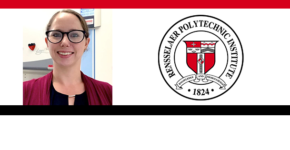
Elizabeth Blaber, Rensselaer Polytechnic Institute – Understanding How the Environment Affects Stem Cell Function
How our environment affects us can be complex. Elizabeth Blaber, assistant professor in the biomedical engineering department at Rensseelaer Polytechnic Institute, uses the harsh environment of space to provide answers. Elizabeth A. Blaber, Ph.D. is an Assistant Professor in the Biomedical Engineering Department at Rensselaer Polytechnic Institute (RPI), a Visiting Scientist with the Blue Marble…
-
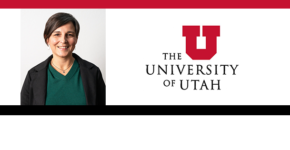
Chris Linder, University of Utah – A New Approach to Stopping Sexual Violence
Stopping sexual violence is imperative. Chris Linder, associate professor of higher education in the department of leadership and policy at the University of Utah, shares why the focus should shift from avoiding to preventing it. Chris Linder is the director of the McCluskey Center for Violence Prevention Research & Education at the University of Utah.…
-

Brad Garner, Indiana Wesleyan University – The Power of Inclusive Hospitality
Helping students manage the stressors of higher education is more important than ever. Brad Garner, associate professor of education and digital learning scholar in residence at Indiana Wesleyan University, explores how faculty can lend a helping hand. Brad Garner serves as the Digital Learning Scholar in Residence at Indiana Wesleyan University. Before moving into higher…
-
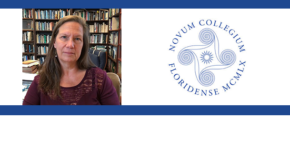
Miriam Wallace, New College of Florida – Free Speech and the 1780s Elocution Movement
Exercising rights can be key to a healthy society. Miriam Wallace, professor of English and gender studies at New College of Florida, explores why. Miriam L. Wallace is Professor of English and Gender Studies at New College of Florida where she has taught English literature from 1660 forward since 1995. She is the author of…
-
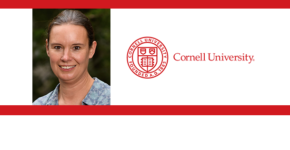
Michele Belot, Cornell University – How Do We Get People to Reconsider Their Choices and Behaviors?
On Cornell University Week: Getting people to reconsider their choices can be tricky. Michele Belot, professor of economics, discusses why. Michèle Belot is Professor of Economics at Cornell University. Her recent research focuses on behavioral change in areas such as job search, dietary habits and political opinions. She has designed and tested interventions using randomized…
-
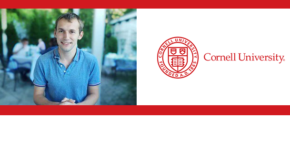
Alex Townsend, Cornell University – Scientifically-Minded Artificial Intelligence
On Cornell University Week: A.I. is also coming to science labs. Alex Townsend, associate professor in the mathematics department, examines the benefits for scientific discovery. Alex Townsend is an Associate Professor at Cornell University in the Mathematics Department. His research is in Applied Mathematics and most recently focuses on developing machines to learn partial differential…
-
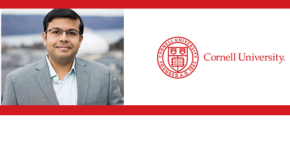
Debanjan Chowdhury, Cornell University – Strange Metals and the Energy Crisis
On Cornell University Week: To solve any energy crisis we may encounter, waste not, want not. Debanjan Chowdhury, assistant professor of physics, determines how to stop energy waste in the future. Debanjan Chowdhury got his undergraduate education in Physics at the Indian Institute of Technology in Kanpur and attended Harvard University for his graduate work…
-
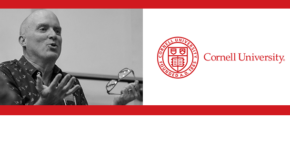
David Shoemaker, Cornell University – Why Psychopaths Have Bad Senses of Humor
On Cornell University Week: The lack of a sense of humor could mean bad things. David Shoemaker, professor and interim chair of the Sage School of Philosophy, explores why. David Shoemaker is a Professor and Interim Chair of the Sage School of Philosophy, Cornell University. His research focuses on humor and morality, agency and responsibility,…
-
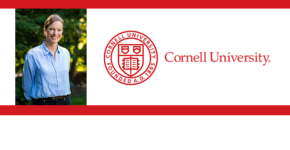
Carolyn Fornoff, Cornell University – Greening Mexican Cinema
On Cornell University Week: Can cinema go green? Carolyn Fornoff, assistant professor of Latin American Studies, examines how. Carolyn Fornoff is assistant professor of Latin American studies at Cornell University. Her work examines how Mexican and Central American cultural production responds to environmental crisis. She is the co-editor of two volumes in the environmental humanities: Timescales:…
-
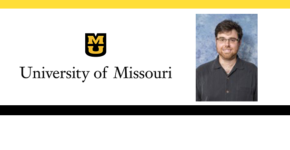
Jeffrey Wood, University of Missouri – Changes in Forest Behavior after Crossing a Drought Threshold
How forests react to droughts might be key to planning for a warmer future. Jeffrey Wood, assistant professor of biometeorology at the school of natural resources at the University of Missouri, examines this issue. I’m an Assistant Professor in the School of Natural Resources at the University of Missouri. My research is broadly aimed at…